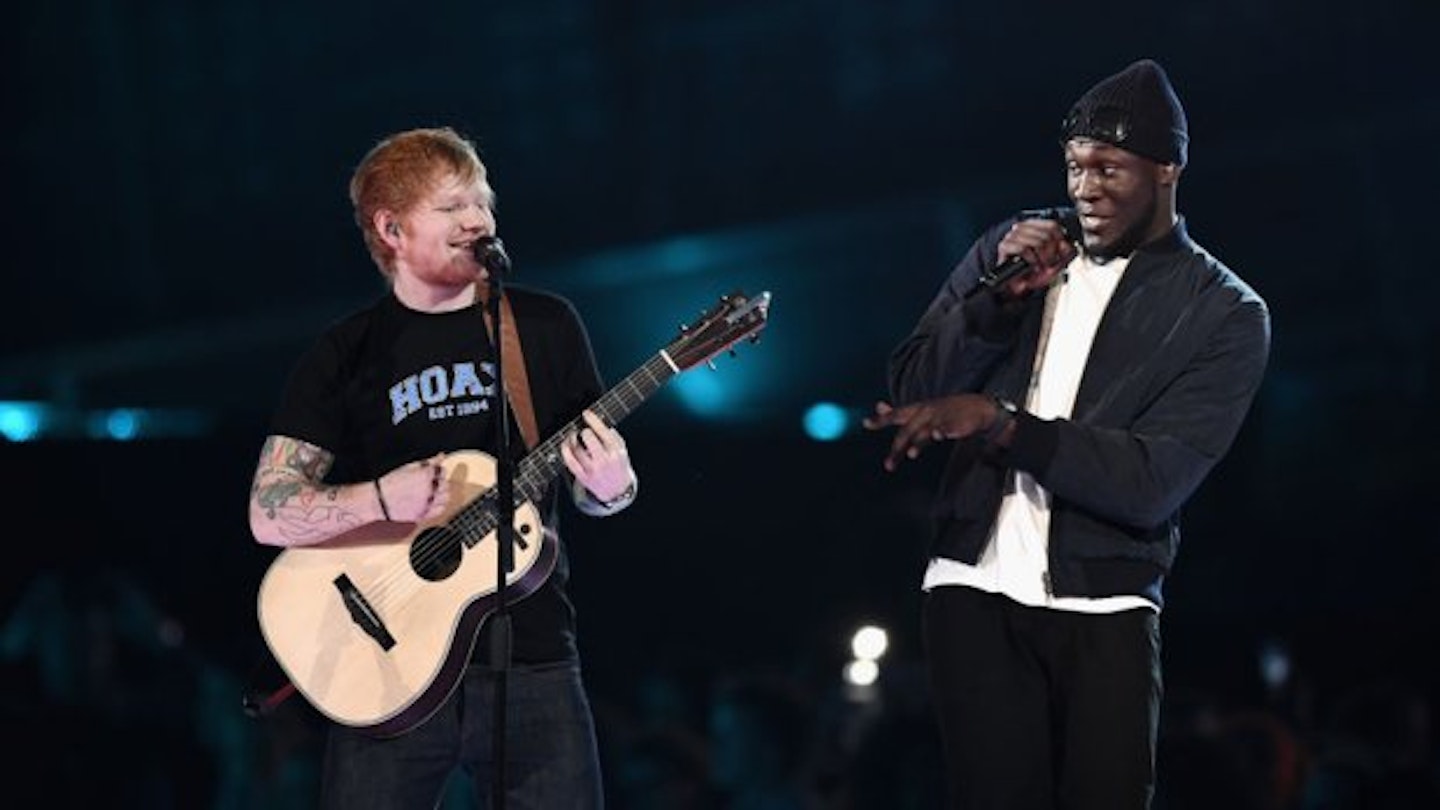My introduction to grime music was on the playground. I’d moved from Bristol to do my GCSEs at a school in Croydon and at lunchtime we’d sit around outside while people would spit bars about girls they hadn’t slept with, gangs they were secretly scared of and that sick shubz man had at yard the other night.
It was honest, it was funny and it was raw AF. It was also amateur was normally recorded on someone’s crappy phone while someone else played the beats on theirs and then would be sent around the group via Bluetooth. Oh, the glory days.
Beyond the school gates the culture and circulation of grime music wasn’t all that dissimilar, though. It truly was a case of ‘if you know, you know’, and if you didn’t listen to pirate radio or had a mate who was hooking up with Wiley’s best friends brother, you probably wouldn’t have known all that much in the early days. Which, to be fair, was crucial to the authenticity of it all.
Grime is one of those genres I’ve always been really defensive of. To people who didn’t get it, grime was always thrown into that generic ‘urban’ category and something that angry young black boys would be found playing on the estates of south London (it was only given its own section on iTunes last year) On the other hand, though, to me grime always felt like it was owned by those who defiantly made themselves part of the scene. Because it’s very much a culture rather than just an underappreciated style of music, and I think that’s what I’ve always loved about it.
By the time I took up a legitimate interest in what was very much the soundtrack of my new endz in Croy Town, Dizzee Rascal’s 2003 Mercury win had been and gone, people were familiar with Wiley’s name and the second in a string of Lethal Bizzle’s ‘POW’ remixes had been released. I felt like I was about 3 or 4 years late to the game but still knew well enough that most of the music lived a million miles further underground than the few bits you’d hear on the radio.
But now it’s 2017 and Stormzy, aka Big Mike, aka Wicked Skengman, aka Stiff Chocolate has a debut album securely in the number one spot on the Official UK Top Album Chart. Ten years ago Kaiser Chiefs were number one with the Yours Truly Angry Mob and there was barely a sniff of hip hop, let alone grime in the top 40.
Music evolves, I get that. And much like rap, hip hop and punk before it, grime was new and the mainstream wasn’t ready for it in the way it apparently is now. What’s great, though, is this apparent resurgence of a genre that for most of us never actually disappeared in the first place, has come about largely without help or prediction from the music industry itself.
Back in 2014 Skepta won a MOBO award for his video to ‘That’s Not Me’. It cost him £80 to make. At the 2015 BRIT Awards, Kanye West was joined by what felt like the entirety of the UK grime family on stage for his performance of ‘All Day’ and people had no choice but to sit up and pay attention. Grime was non-existent at the 2016 BRIT awards, and Stormzy had to publically challenge the BRITs nominations process for changes to be apparent this year.
But whenever grime has gotten a taste of the mainstream limelight, I can’t help be a little bit nervous that it’ll lose the gritty legitimacy that it built far away from the national chart show. Just look at Dizzee Rascal. I won’t so so far as to cry ‘sell-out’, it makes sense to go where the money goes, but after headlining at dance festivals, collaborating with the already commercially celebrated Calvin Harris and, sigh, that World Cup single with James Cordon, amongst my friends at least, it’s only his old music from his Boy in da Corner album that is really still celebrated as ‘grime’.
I love Stormzy. I can’t think of many people who don’t. And I couldn’t be any more excited by the success of Gang Signs and Prayer. But if I’m honest, I gulped a little bit when I watched his performance on Ed Sheeran’s track 'Shape Of You'. Not because it wasn’t good, but because with mainstream recognition normally comes compromise. And my understanding of grime culture is that it's anything but compromising.
Instrumentally speaking, grime isn’t particularly complex. But it doesn't need to be. Lyrically, it reflects voices of a generation who were pretty much ignored by the UK mainstream until the late 00s. And yes sure, we watch music genres merge all the time and it's not a bad thing. I guess that's how many of us are introduced to new styles, new artists and even new cultures. But in my heart of hearts, grime will always be the scratchy recording of a 15-year-old friend of a friend’s unedited track played from someone’s BB in the hour break between third and fourth periods.
Like this? You might also be interested in…
Everybody Wanted To BeStormzy’sBest Friend At The Brit Awards And We Totally Relate
Follow Jazmin on Instagram @JazKopotsha
This article originally appeared on The Debrief.
